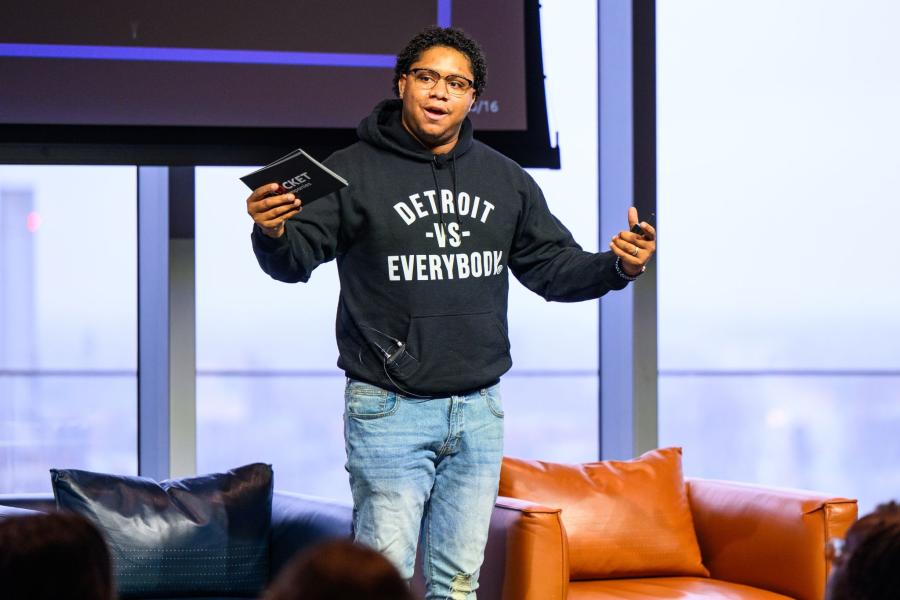
Alumna Spotlight: Jonathan Pulley
“I saw a very clear pathway at Western to help make education more accessible for underrepresented populations and get technical training on how higher education systems work.”
Jonathan Pulley is the Director of Grant Development at the McGregor Fund, where he leads efforts to strengthen community partnerships, develop grant opportunities, and advance equitable funding strategies. A respected voice in philanthropy, Jonathan champions authentic community engagement and collaborative ecosystems, with a deep commitment to racial justice and student access to education.
Jonathan credits his path to the HESA program at Western Michigan University for preparing him to navigate complex higher education and philanthropic systems. “I saw a very clear pathway at Western to help make education more accessible for underrepresented populations and get technical training on how higher education systems work,” he recalls. His graduate assistantship at WMU’s Career Center allowed him to advise over 1,200 students, fostering his focus on bridging gaps in educational access.
Reflecting on the cohort experience, Jonathan notes, “You got to build a relationship and rapport with folks who are similar in their journey. Those relationships now help me connect quickly with colleagues doing similar work at a statewide and philanthropic level.”
Before joining the McGregor Fund, Jonathan led initiatives at Rocket Community Fund to connect young adults to family-sustaining employment and began his career in philanthropy at the W.K. Kellogg Foundation. His work consistently emphasizes community-driven solutions: “At the heart of my work is a commitment to centering community-driven solutions while ensuring that the voices closest to the problem shape lasting, equitable change.”
Jonathan has been recognized as an Emerging Leader in Philanthropy by the Council of Michigan Foundations and was named one of Michigan Chronicle’s 40 Under 40 in 2024. He continues to leverage his HESA foundation to create transformative opportunities that address systemic inequities and expand educational access for underrepresented populations.

